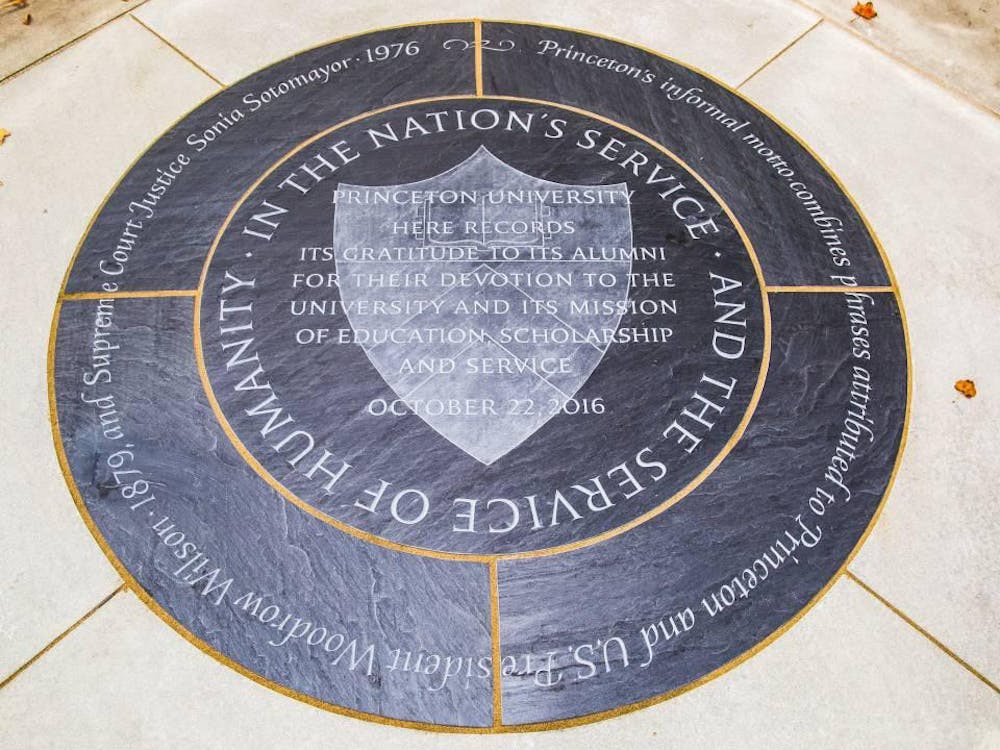Turning to the audience, they called, “Raise your hand if you’re a feminist!”
Probably 90 percent of the audience raised their hands.
Taken aback, the gorilla women paused. “Well ... for the rest of you, we hope this talk will change your mind,” they concluded lamely.
The masked women were the Guerilla Girls, who spoke at Princeton on Feb. 16. Calling themselves “feminist masked avengers in the tradition of anonymous do-gooders like Robin Hood, Wonder Woman and Batman,” they started their movement in the 1980s, using posters to call attention to the underrepresentation of women in the art world. In the 1980s, when Roe v. Wade and the Equal Rights Amendment had only been around for a decade and the Guerilla Girls’ use of aggressive — and sometimes illegal — tactics to spread knowledge about gender inequalities in the art world was attracting attention for the first time, it is likely that this call would have succeeded in its purpose: to shock self-avowed feminists with the ignorance of their peers. It probably would have worked in a high school auditorium where none of the audience has chosen to attend the talk of their own free will. It definitely would have worked in my hometown of Indianapolis, Ind., where I grew up teased every day about being a lesbian because I called myself a feminist.
But at a liberal East Coast school, it didn’t resonate.
If you’re a Princeton student, you’re probably familiar with most feminist tropes. If you’re a Princeton student at a Guerilla Girls lecture, you almost definitely are. You know who Susan B. Anthony is. You know what the 19th Amendment did. You know that, on average, women earn less than men. You know that women have been subjugated by the established male patriarchy in a variety of ways for thousands of years. You know that the portrayal of women in the media has earned a lot of attention for being damaging to the perception of women in modern society. You know that feminist means “a person who believes in gender equality” and not “a violent, unattractive lesbian who wants a personal cabal of male slaves.”
I was hoping the Girls would have more faith in their audience. I was hoping to hear a thorough and intelligent discussion of the intricacies of 21st-century feminism and its future after the heydays of second- and third-wave feminism. I wanted the Guerilla Girls, whose potent social commentary was so crucial for women’s rights in the 1980s, to investigate modern issues or at least describe their feminist experience with more than a stilted, self-congratulatory speech that glossed over the intellectualism at its center.
With the exception of a Virginian governor or two, there are few obvious attacks on American women’s basic freedoms on a daily basis. Women’s liberation made many strides in abolishing institutionalized prejudice: The enemy is no longer an obvious one. Modern sexism manifests itself in complications of gender roles, male-female interactions and, most significantly, in the media’s representation of women as being valuable only for their appearance. Modern women, though no longer subordinate to men from a legal perspective, are victims to expectations of physical perfection that, in a way, serve as their own type of subjugation.
If the agenda of the talk was to convert anyone to feminism, the Girls were wasting their time. They were preaching to the choir. What I wanted to hear — what needed to be said — is that feminism is still relevant, that the same passionate protests that the Guerilla Girls stand for have a place in modern society. (If Governor McDonnell’s intravaginal ultrasound bill — now thankfully abandoned — shows anything, it’s that American women still need to fight for their freedoms.) When modern feminist dialogue consists only of a poorly rehearsed rehashing of tired statistics, I can’t blame those who claim that feminism is over. I know the Guerilla Girls are old guard; maybe their time has come and gone. But instead of handing me a banana, I wish they had offered me a torch.
Susannah Sharpless is a freshman from Indianapolis, Ind. She can be reached at ssharple@princeton.edu.








